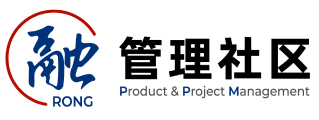【VSM每周观点】在数字经济中通过软件驱动业务价值|第14期
 681 2023-08-25
681 2023-08-25
我们非常重视原创文章,为尊重知识产权并避免潜在的版权问题,我们在此提供文章的摘要供您初步了解。如果您想要查阅更为详尽的内容,访问作者的公众号页面获取完整文章。
Summary of "Driving Business Value Through Software in Our Digital Economy"
Introduction
The article by VSM Consortium emphasizes the importance of customer-focused value delivery in lean-agile operations. It highlights that delivering customer value is not novel, but lean software development philosophies and agile practices have long recognized this need. The lean approach focuses on assessing the value stream from idea to delivery to minimize waste and ensure capabilities match customer needs, aiming to deliver what customers want efficiently and quickly.
DevOps as a Value Delivery Pipeline
DevOps improvements such as toolchain integration, activity automation, and work synchronization are part of accelerating value flow through software. Value Stream Management (VSM) tools and platforms integrate data across pipeline tools to enhance decision-making. However, investments in DevOps, VSM tools, and toolchains are daunting at the enterprise scale and require executive support and inclusion in the organization's investment portfolio. The Fuzzy Front End (FFE) phase, which involves the time from identifying an idea to the team fully understanding the requirements, is challenging to measure and automate, and improvements in downstream CI/CD and DevOps pipelines have little impact on an organization's ability to accelerate customer-centric and value-based delivery.
Managing Chaos from Competing Interests
Organizations with modern DevOps capabilities might face a different problem: too many high-priority work items in the backlog, often driven by competing factions with the same level of urgency. Although lean production theories offer concepts like flow, visual management, and continuous learning to identify and eliminate waste, they do not directly address work prioritization. Task switching, a form of waste identified in lean software development, necessitates a method for continuous value-based prioritization.
Objectives Over Speed
A core issue with the Fuzzy Front End (FFE) is that despite investments in CI/CD, DevOps pipelines, and VSM platforms, organizations may not see a reasonable return on investment if they cannot deliver business value rapidly. Faster software delivery does not guarantee faster business value delivery. Moreover, focusing solely on improving unconstrained activities can exacerbate delivery issues, increase costs, and create bottlenecks that collapse the system.
Six-Step VSM Methodology
The six-step VSM methodology includes committing to lean, learning how it works, mapping the current state, and designing a future state map to drive DevOps with Value Stream Management.
Conclusion
In conclusion, while mature DevOps capabilities are essential for competing in the modern digital economy, they may not create sufficient business value to justify the investment. Fortunately, VSM offers a methodology that provides insights into all value streams, identifies priorities, and drives digital improvements that maximize customer value, supporting software-based value delivery pipelines.
想要了解更多内容?


白皮书上线








